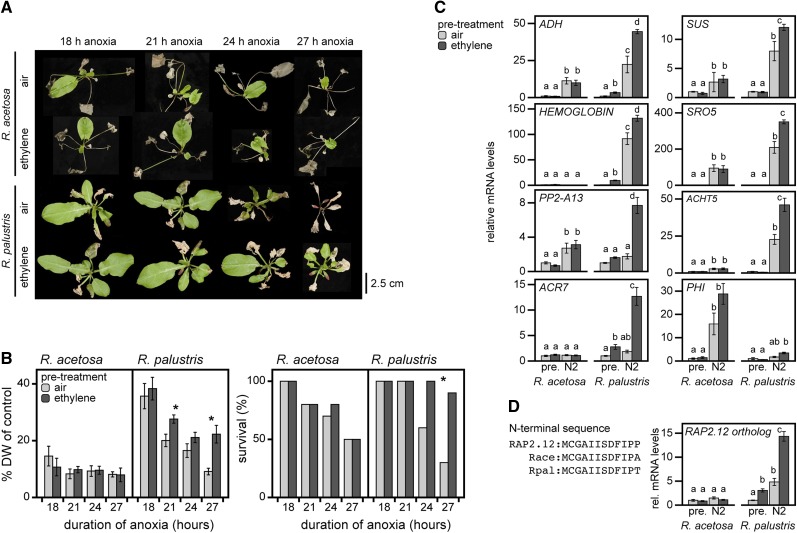Figure 7.
Ethylene Primes R. palustris for Upcoming Anoxic Conditions.
(A) Rumex phenotypes after 4 h of normoxic pretreatment with or without ethylene, followed by anoxia (N2) treatment in the dark (18-27 h) and 7 d of recovery under standard growth conditions.
(B) Effect of pretreatment and anoxia on dry weight (DW) (mean ± sem, n = 10; * P < 0.05, Tukey LSD) and plant survival (n = 10, * P < 0.05, chi square). The experiment was repeated three times independently with similar results (representative data are shown).
(C) Expression of eight OMCL families that are identified as core hypoxia-responsive genes in Arabidopsis after either 4 h of pretreatment (air or ethylene) or pretreatment in combination with 4 h of anoxia (n = 5, mean ± sem; letters P < 0.05 Tukey LSD).
(D) The conserved N terminus essential for oxygen sensitivity of Arabidopsis RAP2.12 and the Rumex orthologs, together with the relative transcript abundance of the Rumex orthologs (letters P < 0.05, Tukey LSD) upon ethylene (pretreatment 4 h) and subsequent anoxia (N2, 4 h.).
[See online article for color version of this figure.]

